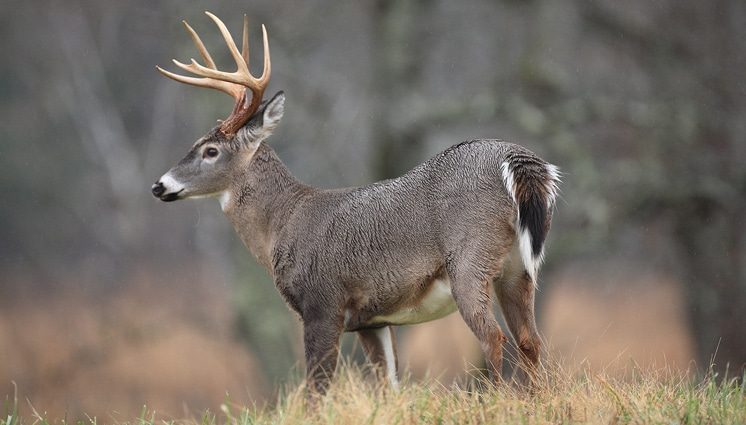Two pieces of legislation that would prohibit the purchasing and selling of whitetail deer in Mississippi no longer have a chance at becoming state law this legislative session — sparking elevated concerns from conservationists and other outdoor enthusiasts.
House Bill 1026 and Senate Bill 2536 were introduced to outlaw buying and selling whitetail deer but did not make it out of their respective chambers. Proponents of the bills argue that a handful of wealthy elites are looking to change the laws so they can breed, sell, and transport deer between high-fenced enclosures in Mississippi.

This would be a departure from the North American Wildlife Model, which is at the core of Mississippi’s wildlife conservation success. The key principle of this model is that all wildlife in this state belongs to the people of Mississippi.
A recent opinion from Mississippi Attorney General Lynn Fitch granted the Commission of Wildlife, Fisheries, and Parks plenary authority over regulations put in place over matters pertaining to transactions of wild animals, which opens the door to a drastic change in policies that have been held for years. Conservationists argue she potentially opened a conservation Pandora’s Box.
James Cummins, the executive director of Wildlife Mississippi, fears that the individuals behind the push to allow whitetail deer to be bought and sold legally intend to place purchased deer in high-fence enclosures for people to pay to hunt them.
Cummins is also worried that transporting multiple deer from one habitat to another could increase the chances of Chronic Wasting Disease (CWD) spreading and potentially killing off a sizable portion of Mississippi’s deer population — which would have harsh ramifications on the state’s recreational economy.
RELATED: First case of Chronic Wasting Disease detected in Tunica County
“Hunting in Mississippi represents 34,000 jobs. Think of the times we’ve called a special session in the legislature for less than 10 percent of that. That just shows the significance of this in terms of our recreational economy. It’s a $3 billion industry as it is,” Cummins said on SuperTalk Outdoors with Ricky Mathews. “We don’t need things that can put those dollars, those jobs…those types of things that Mississippians love to do at risk because a few people want to have it their way.”
As a supporter of fair-chase hunting, a concept that began in Mississippi in 1902 when President Theodore Roosevelt refused to shoot a tied-up bear, Cummins has fundamental angst with the spirit of deer being bred in one habitat, purchased by an individual, placed into a new environment that has physical barriers, and killed by one who paid to hunt in that area.
“Whether you’re refusing to shoot a tied-up bear or refusing to shoot a deer that’s in a fence that has an ear tag and you look in a catalog and say, ‘I want number 47,’ that’s not what hunting is about,” Cummins continued. “Fair-chase hunting is about an experience.”
Cummins would like to see fellow conservationists as well as the hundreds of thousands of outdoorsmen in Mississippi take a stand and endorse measures that would prevent a few individuals from doing things that threaten Mississippi’s wildlife heritage.
The full interview can be watched below.







